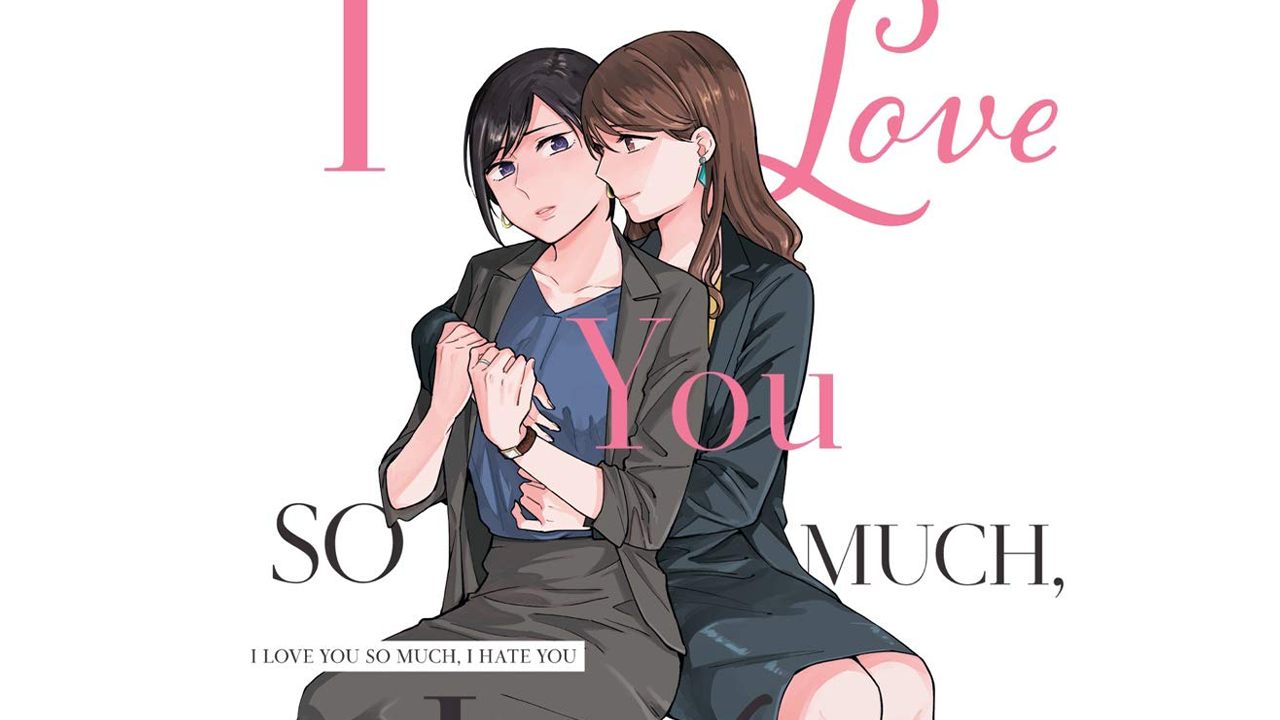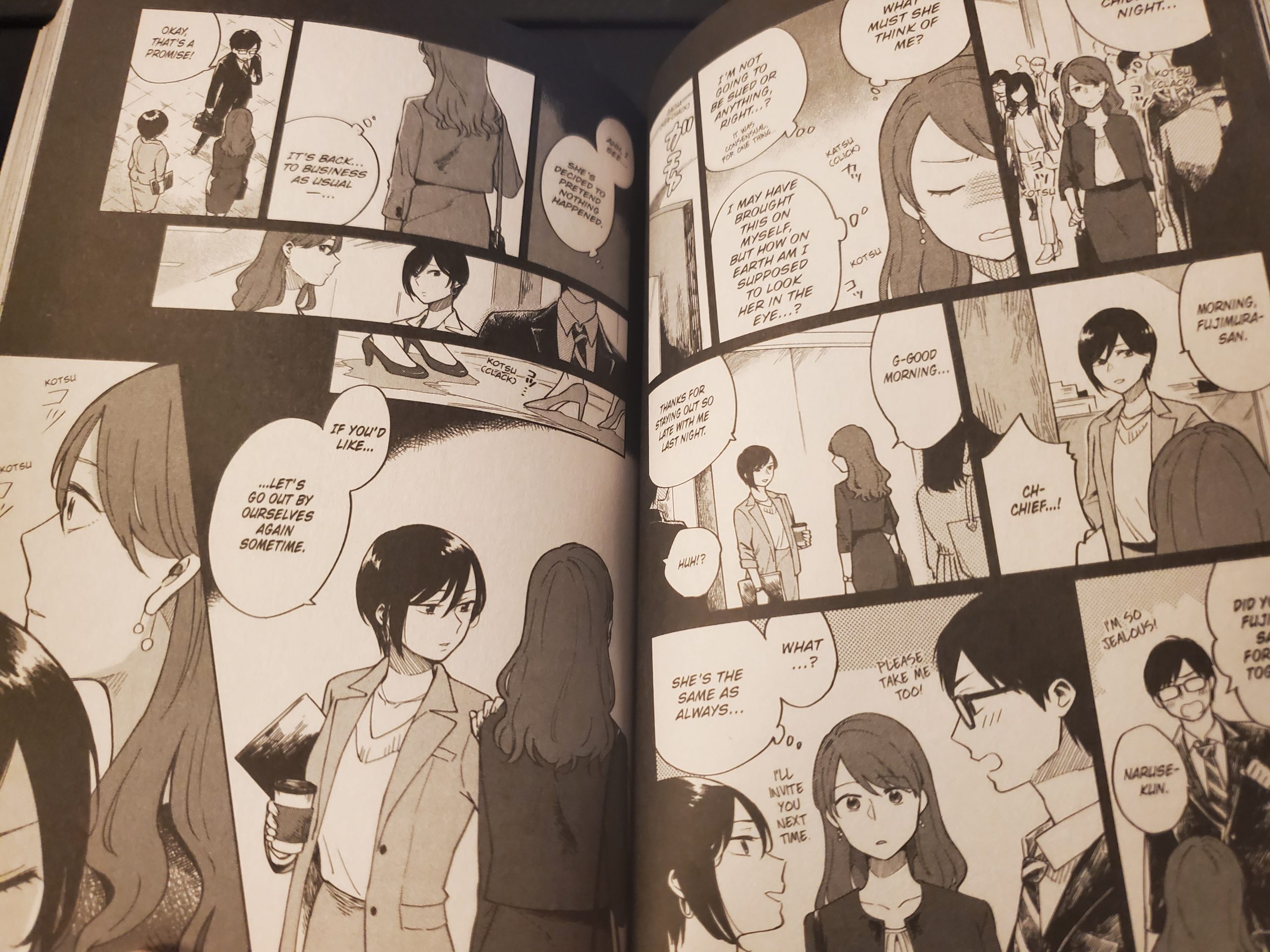I first stumbled upon I Love You So Much, I Hate You on ComicK, and I didn’t expect to be swept into such a delicate, emotionally charged story. The tension between Saori Fujimura and her supervisor Ayako Asano immediately drew me in. From the very first pages, I could feel the layers of longing, frustration, and vulnerability that make this office romance resonate beyond the usual clichés.
Reading this manga felt like stepping into a private world of desire and restraint. Every glance, every subtle gesture between Saori and Ayako carries weight, and I found myself empathizing deeply with their struggles. It’s the kind of story that lingers in your mind, long after the panels have been closed.
What made the experience unforgettable for me was how ComicK allowed me to access this story seamlessly, letting me immerse myself fully in the emotional highs and lows of the characters. It’s a manga that feels personal, intimate, and profoundly human.
Saori Fujimura: Vulnerable Yet Determined
Saori’s journey is both relatable and heart-wrenching. As a young woman openly attracted to women, navigating office life and societal expectations, she constantly balances vulnerability with determination. I was drawn to her honesty, her small acts of courage, and the moments when she dared to confront her feelings despite the potential fallout.
Her character made me reflect on the challenges of expressing true feelings, particularly in a society quick to judge. Every subtle internal struggle, every moment of hesitation, resonated with me on a very personal level.
I appreciated how the manga doesn’t shy away from showing the complexity of Saori’s emotions. She’s not a perfect protagonist she doubts, hesitates, and falters but that imperfection made her journey feel authentic and heartfelt.

Ayako Asano: Elegance and Emotional Conflict
Ayako’s character is layered with sophistication and inner conflict. As a married supervisor, her attraction to Saori is shadowed by responsibility, societal norms, and personal hesitation. I found her restraint fascinating it adds depth to a story that could otherwise have felt rushed or simplistic.
Watching Ayako struggle internally while maintaining a professional exterior created an emotional tension that kept me glued to the page. Every moment where her guard slips, revealing vulnerability, was a highlight for me.
The dynamic between Saori and Ayako is more than just romance it’s a study of desire, restraint, and the complications that come with forbidden love. This tension elevates the story beyond a simple office romance.
The Art of Intimacy
Yuni’s artistry truly shines in this manga. The way intimate moments are depicted without ever feeling exploitative struck me as both sensitive and powerful. I was impressed by how the emotions of each character are conveyed through subtle facial expressions and body language.
The black-and-white panels are skillfully drawn, emphasizing emotion over spectacle. I found myself pausing on certain frames just to absorb the nuance and intensity captured in a single glance or touch.
For me, the visual storytelling is as compelling as the narrative itself. Yuni demonstrates that intimacy in manga doesn’t need to rely on explicitness alone it can emerge through emotion, tension, and careful observation.
Navigating Forbidden Love and Social Pressure
The story doesn’t shy away from depicting the challenges of a workplace romance. Gossip, societal expectations, and heteronormative pressures constantly threaten Saori and Ayako’s connection. I found this grounding in realism refreshing it added stakes and made their moments together feel earned.
I particularly enjoyed seeing the small victories: a fleeting touch, a shared smile, a candid conversation. These moments, though subtle, felt monumental within the confines of their professional and personal boundaries.
It reminded me that love stories aren’t always about grand gestures; sometimes, the quiet moments of connection matter most, and Yuni captures that beautifully.

Emotional Depth in a Compact Story
While some might feel the story progresses quickly, I found that the compact nature of the narrative intensifies the emotional impact. Every page counts, every scene contributes to character development, and I was surprised at how deeply I became invested despite its brevity.
The postscript insights from Yuni added another layer of authenticity. Knowing the personal connection the creator has with the story enhanced my appreciation for the nuances and care taken in portraying Saori and Ayako’s journey.
By the end, I felt both satisfied and emotionally moved. It’s a story that lingers, prompting reflection on desire, vulnerability, and the courage it takes to embrace love in unconventional circumstances.
Why I Love You So Much, I Hate You is Worth Reading
I Love You So Much, I Hate You may not reinvent the office romance genre, but it excels in portraying human emotion with honesty and sensitivity. Saori and Ayako’s story is tender, heartfelt, and evocative, drawing readers into their intimate, complicated world.
ComicK provides the perfect platform to experience this manga, making it accessible to readers who crave nuanced LGBTQ+ stories. Personally, reading it left me both enchanted and contemplative I found myself rooting for the characters long after finishing the final page.
If you enjoy romance that explores identity, emotional tension, and forbidden desire with sincerity and artistry, this manga is a must-read. It’s a story I’ll remember and recommend to anyone seeking a deeply personal, beautifully told romance.
read more:
- Exploring Toukyou BabyLon’s Bittersweet 90s Legacy
- Inside The Red Thread: LGBTQ+ Love Tied by Destiny’s String
